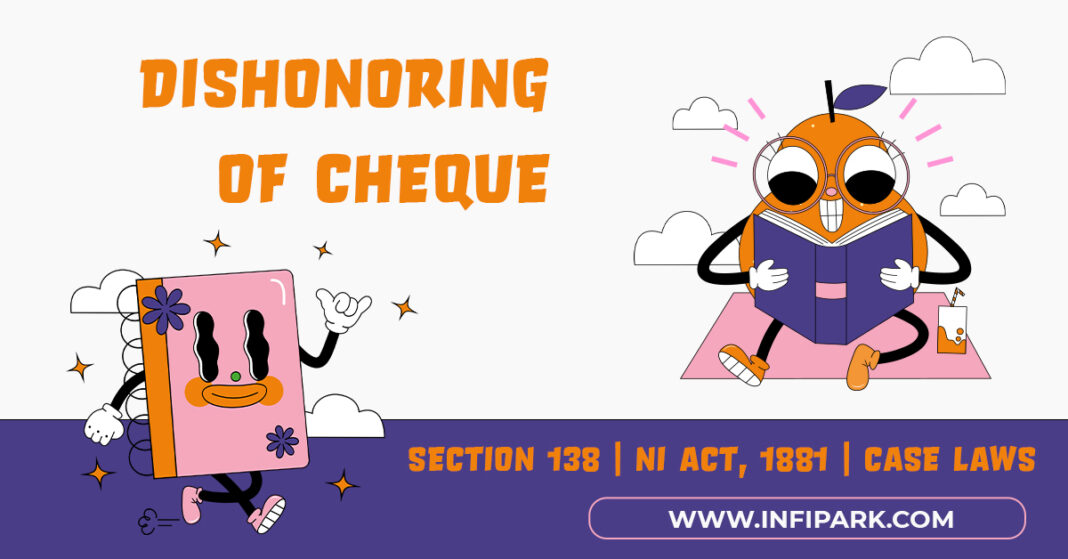Section 138 is a section of the Negotiable Instruments Act, 1881 in India, which deals with the legal consequences of dishonoring a cheque. The section provides for criminal liability for a person who issues a cheque that is dishonored due to insufficient funds or other reasons. Here are some important things to know about Section 138:
Legal consequences: If a cheque is dishonored, the payee can send a legal notice to the issuer of the cheque demanding payment within 15 days. If the issuer fails to make the payment within this time, they may be liable for criminal prosecution under section 138 of the Negotiable Instruments Act, 1881.
Criminal liability: Under section 138, the issuer of the cheque may be punished with imprisonment for a term that may extend to two years, or with a fine that may extend to twice the amount of the cheque, or with both.
Legal requirements: To initiate legal proceedings under section 138, the payee must prove that the cheque was issued for a legally enforceable debt or liability, that the cheque was presented within the validity period, and that the cheque was dishonored due to insufficient funds or other reasons.
Legal defences: The issuer of the cheque may have defences available to them, such as lack of knowledge of insufficient funds, mistake, duress, or fraud. However, the burden of proof is on the issuer of the cheque to prove their defence.
Prevention: To prevent legal consequences under section 138, it is important to ensure that sufficient funds are available in the account before issuing a cheque. It is also important to maintain accurate records of transactions related to the cheque.
It is important to note that the legal requirements and consequences of dishonoring of cheque can vary from country to country. If you are involved in a cheque bounce case, it is important to seek legal advice from a qualified lawyer who can guide you through the legal process and help protect your rights and interests.
Cheque bounce or Dishonoured cheque is a common legal issue in many countries. Here are some notable cases related to cheque bounce:
Dashrath Rupsingh Rathod v. State of Maharashtra (2014): In this case, the Supreme Court of India held that a cheque bounce case can be filed against a company’s managing director, even if the company is not named as an accused in the case. The court also held that in such cases, the managing director can be held liable if he or she was responsible for the company’s affairs at the time of issuing the bounced cheque.
Smt. Sujata Rakesh Rohtagi v. State of Maharashtra (2015): In this case, the Bombay High Court held that a cheque bounce case can be filed against a guarantor who has issued a post-dated cheque as security for a loan or debt. The court held that the liability of the guarantor is absolute, and he or she cannot avoid the liability by claiming that the loan or debt was not repaid by the borrower.
Pramodkumar R. Mody v. State of Kerala (2018): In this case, the Kerala High Court held that a cheque bounce case can be filed against a person who issues a cheque in a representative capacity, such as a partner of a firm, even if the cheque is issued in the name of the firm. The court held that the person who signs the cheque on behalf of the firm is liable for the dishonor of the cheque.
These cases and others have established various legal principles related to cheque bounce, providing a legal framework for holding individuals and entities accountable for dishonoring cheques and providing recourse for those who have been affected by such actions. It is important to note that the laws related to cheque bounce can vary from country to country, and it is important to consult with a legal professional familiar with the laws of your jurisdiction for guidance on how to proceed in such cases.







